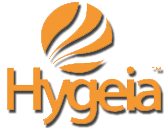“It’s supposed to hurt.”
It’s one of the biggest breastfeeding myths! That’s not to say nipple pain is not a common hurdle for many new moms, sometimes hindering the establishment of a successful breastfeeding journey. Don’t let discomfort deter you! With proper knowledge and a few helpful strategies, you can manage nipple pain and continue breastfeeding with confidence.
Problems & Solutions: Why Do Nipples Hurt?
Several factors can contribute to nipple pain during breastfeeding:
Problem: Incorrect Latch
An improper latch, where your baby isn’t fully mouth-cupping your breast tissue, can put unnecessary pressure on the nipple and cause pain.
Solution: Perfect Your Latch
Seek guidance from a lactation consultant or healthcare professional to ensure your baby is latching on correctly. A deep latch with a wide mouth opening will help distribute pressure evenly and minimize nipple pain.
Problem: Engorgement
In the first few days after birth, your breasts may become engorged with milk, making it difficult for your baby to latch on properly and leading to nipple soreness.
Solution: Frequent Feedings
Frequent breastfeeding can help prevent engorgement and allow your baby to remove milk effectively. Aim for feeding cues rather than a strict schedule. Pumping and storing excess milk can help reduce engorgement especially during night feeding when baby may go longer stretches without feeding. Check out Hygeia’s hospital-grade breast pump and milk storage containers.
Problem: Tongue Tie
Ankyloglossia, or tongue tie, is a condition where a baby’s tongue is restricted by a short frenulum (the tissue under the tongue). This can make it challenging for them to latch effectively and may contribute to nipple pain.
Solution: Seek a Specialist
While some view correcting tongue-tie as a simple solution for breastfeeding difficulties, there’s ongoing debate about its necessity and potential for over-treatment in some cases. As the parent you have the final say for what is best for your child. You can find a specialist to help guide you to solutions here.
Problem: Friction
Frequent rubbing of the nipples against clothing or improper wiping after feeding can irritate the delicate skin.
Solution: Wear Loose Clothing
Opt for breathable, loose-fitting clothing that won’t rub against your nipples. Also change nursing pads appropriately if they are being used. You can find ideas for comfortable nursing clothes here.
More Solutions for Soothing Soreness
Even if none of the aforementioned problems seem to be the cause of the nipple pain you are experiencing, there are some more steps you can take to find relief:
Warm Compresses: Applying warm compresses to your breasts before feeding can help promote milk flow and ease discomfort.
Cold Relief: After feeding, using chilled breast milk compresses or soothing nipple creams can provide temporary pain relief.
Air Drying: Allow your nipples to air dry completely after feedings to prevent irritation from moisture.
Beyond Relief: Preventing Nipple Pain from the Start
Nipple pain can be avoided in a lot of cases. Here are some proactive tips to prevent the problem before it starts:
Prenatal Education: Learning about proper breastfeeding techniques and latching during pregnancy can help you feel more prepared for the early days of breastfeeding.
Skin-to-Skin Contact: Practice immediate skin-to-skin contact with your baby after birth. This not only fosters bonding, but it also encourages instinctive latching.
Proper Positioning: Experiment with different breastfeeding positions to find one that feels comfortable and allows for a deep latch.
Moisturize (Selectively): While avoiding harsh soaps and lotions on your nipples is crucial, applying a small amount of lanolin cream after feeds can help keep the skin hydrated.
At Hygeia Health, we understand the challenges and rewards of breastfeeding. We’re dedicated to supporting moms on their breastfeeding journeys by providing not only high-quality breast pumps but also access to valuable resources.
If you’re experiencing persistent nipple pain or have any breastfeeding concerns, don’t hesitate to reach out to a lactation consultant or healthcare professional. They can provide personalized guidance and support to help you achieve a successful and comfortable breastfeeding experience.

